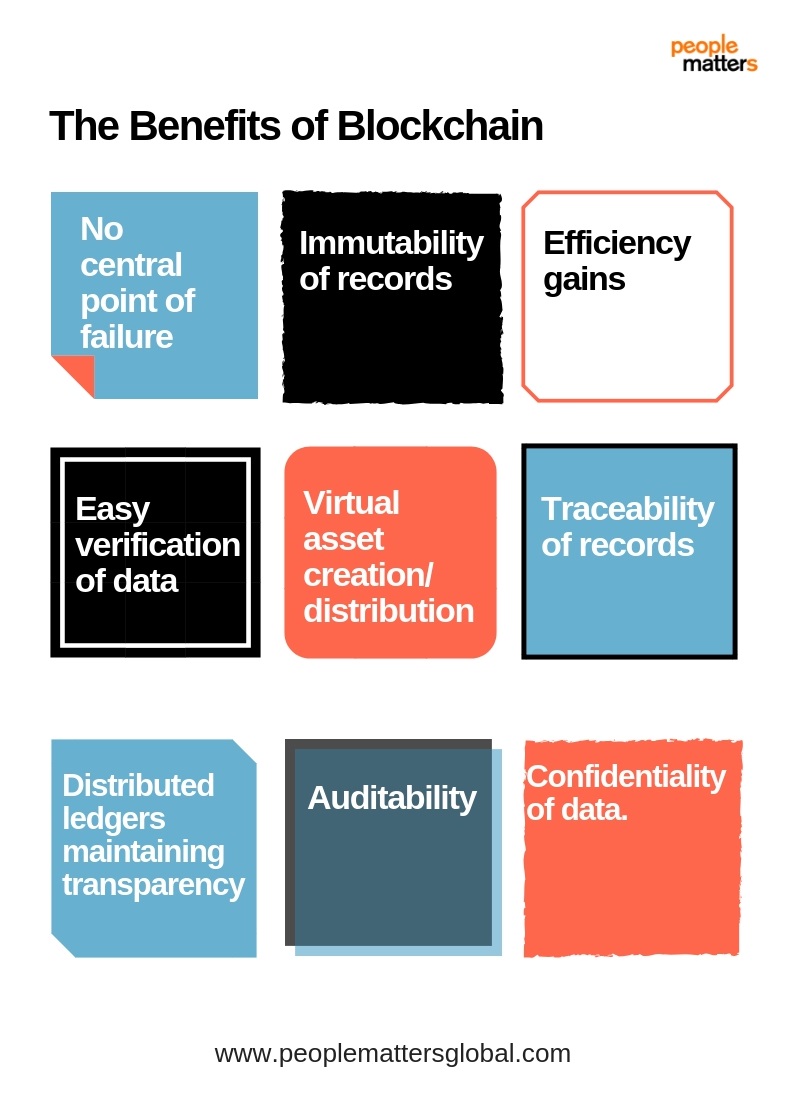Is HR ready for blockchain?

TechHR Singapore 2019 Read similar articles

The word "blockchain" is peaking in frequency in corporate boardrooms and has become impossible to ignore. Organizations like Maersk, Accenture, Facebook, etc. are investing aggressively in the blockchain. Accenture in partnership with companies like Microsoft launched the project ID2020 to support the UN Sustainable Development Goal which aims to provide a legal identity for all, including birth registration, by 2030. The world’s largest transporter, Maersk, examined the technology earlier this year to track cargo. Retail giant Walmart is using blockchain to track how livestock from China moves through the supply chain. In education, blockchains are being set up to secure and share student records, degrees, and credentials.

While the technology is not new but recently it has become more mainstream. The technology has the potential to disrupt everything we do online and in the real world, including traditional HR processes.
Here is how HR can adopt blockchain in HR across the employee lifecycle:
1. Payroll
Originally, blockchain is the decentralized ledger behind the digital currency bitcoin. A ledger consists of inked batches of transactions known as blocks (hence, blockchain) and an identical copy stored on each computer that make up the bitcoin network.
Using blockchain, transaction details are stored across the decentralized ledger, and each exchange is validated by the terms outlined initially. For example, A Company owes B amount to C Employee on the D of the month. Once an employee completes the proof of work algorithm directing the exchange and confirming that all conditions are met (it is that particular day of the month, and that particular employee has completed a certain number of working days for that specific company) the payroll process initiates.
Using blockchain, we eliminate the external intermediaries and just the terms of the transaction and compliance regulations, and a network of computers does the work. Blockchain can completely automate payroll, limit the extraneous expenditure of resources, and enhance security all at the same time.
2. Onboarding
One of the many advantages of blockchain technology is incorruptibility of data. Once the data is coded in the ledger, it cannot be tainted because every node in the network will know about it. HR can leverage blockchain to store and verify credentials and avoid discrepancies. Blockchain can be used by HR during Onboarding while ascertaining the new hires’ details and ensures easy onboarding of candidates without using paper documents. Blockchain can serve as a resume-keeping device, compiling credentials and professional achievements as public record along the decentralized ledger. Since data cannot be changed, the screening process will become more comfortable as all employers gain access to a comprehensive and completely transparent employee repository.
3. Expense Reimbursement
How long does it take to approve or deny employee reimbursement? Most companies and employees complain about the loophole in the reimbursement process citing challenges like long process time, missing information in an expense report, etc.
By adopting blockchain, organizations can eliminate ongoing conflict between the reimbursed and reimburse. Blockchain brings a whole revival of transparency, as all company-funded transactions are etched into the blockchain network.
4. Recruitment
The blockchain technology will connect and collect candidates’ information across platforms to get the profile matching correct against the Job Description. Additionally, it will suggest referrals based connections one has in their network, thus enhancing sourcing network. For hiring, access to academic credentials and certifications could diminish the number of time recruiters spends verifying information.
The blockchain allows peer-to-peer interactions that decrease middleman costs and streamline the flow of data needed in the hiring process. This technology will allow candidates to go directly to the masses while keeping their data confidential.
Still skeptical about implementing blockchain?
Here are some of the benefits for considering blockchain:

Blockchain technology has a lot of advantages and can potentially disrupt the way organizations work. However, the lack of talent in this technology is concerning. According to TechCrunch, there are 14 job openings for every one blockchain developer. Blockchain’s exponential growth will lead the industry to experience the same staff shortages and skills-shortfall challenges that the tech boom experienced.
Want to know why blockchain matters for talent leaders? Do not miss People Matters TechHR Singapore at Marina Bay Sands on February 28th, 2019. Register Now!





